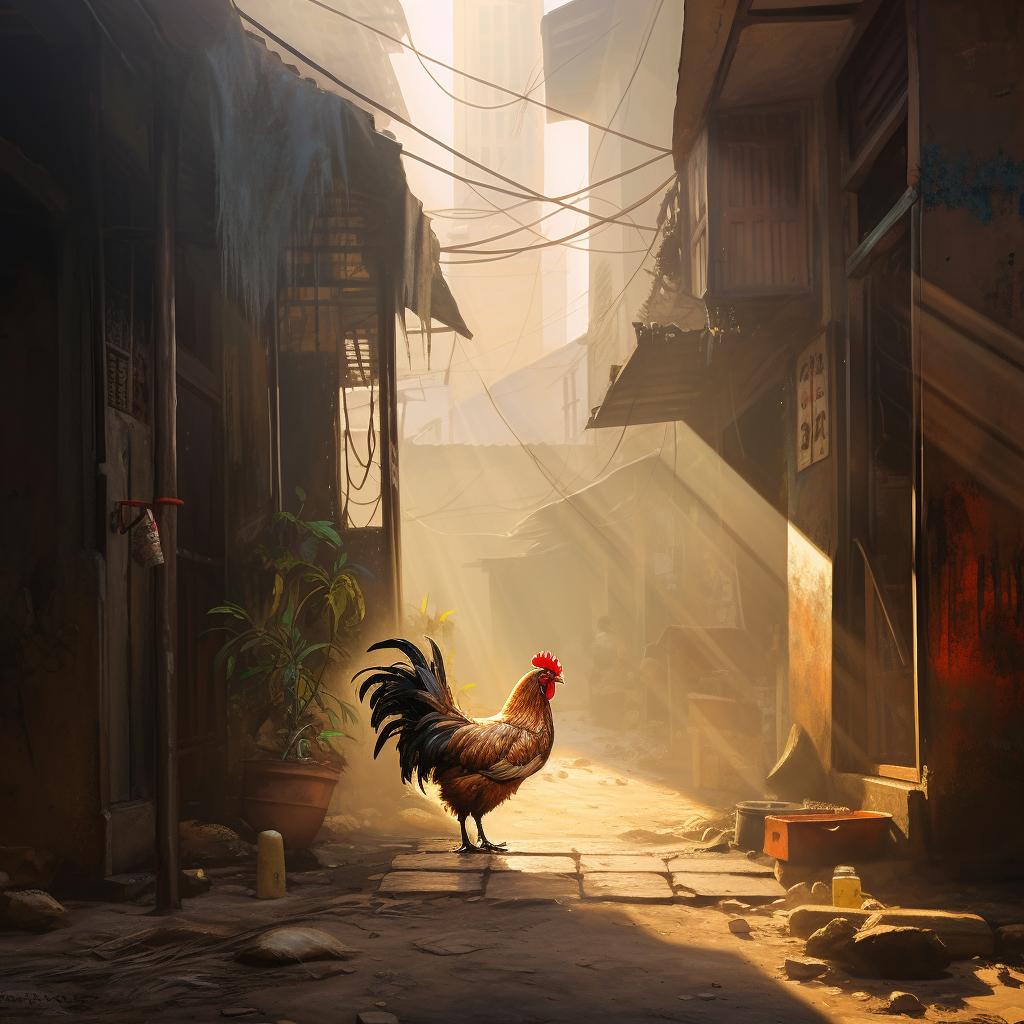Mind Maps #10 - Confused Roosters, Happy Bars & The Secret of Our Success

The roosters in Port Barton are deeply confused. They will crow anywhere from 2:30am onwards, like the world’s most annoying alarm clock. Do they get together to discuss who is on night shift? The rooster roster.
The surplus of chickens might be explained by the cock fights that occur every Sunday, somewhere out of town. Local men return having won or lost a few hundred pesos, but the stakes are higher for the competitors.
Occasionally, in some dusty side street, you will see an abandoned survivor, a war veteran with post-traumatic-cock-fighting-disorder. With chunks of feathers ripper out, these disenfranchised roosters look more like mangy dinosaurs.
So, maybe I shouldn’t complain about my noisy neighbours, calling out in the night. Many of them face a haunting fate.
Notwithstanding the destiny of its feathered residents, Port Barton is a veritable slice of paradise. The town arches back from a crescent slice of idyllic coastline. Local businesses crop up on the rocky sidestreets.
In the morning, I sip Nescafé gratefully, having long since abandoned Melbourne coffee pretensions. I look out from a roadside shack as the sparse morning traffic rattles by. Sometimes, three or four generations are represented on a single scooter, Grandma staunchly on the back, Dad driving, a toddler in his lap, smiling out at all the world.

Late afternoon, as the heat of the day subsides, the beach comes alive in the twilight. Along the shore, hidden among the expensive resorts, open-air massage parlours and boat rental businesses there is the Happy Bar. It’s a cheap and cheerful establishment that offers a Redhorse (local beer) and a rum & coke for eighty pesos (around $2 AUD). Dangerous. Reggae plays on speakers, adhering to some unwritten rule, an international Rastafarian edict mandating that Bob Marley be played in every island bar around the world.
All the patrons of the Happy Bar faces one way, with seating arranged like the rows in a dim movie theatre. The feature film rarely disappoints. Facing west, the sun sets over the sea in a display of orange and purple, like a slow-motion, melting watercolour.

Of course, the reality of life here is not all seaside sunsets and never-ending happy hours. Many locals struggle despite their hospitable smiles. Power and politics, as everywhere, dictate the course of things. Amongst travellers, friendships, however beautiful, are necessarily temporary.
On the other side of the beach, stray dogs scavenge among the rubbish discarded on the white sands. Naturally, there's darkness in paradise.
I wander back to my room. I should get to bed before the nocturnal, feathered alarm clock sounds once again.
A few recommendations
🎵 Captivating Portuguese Songwriter, MARO - I'm a sucker for beautiful (and somewhat depressing) guitar music. This week I came across the Tiny Desk Performance from Portuguese guitarist and singer-songwriter, MARO. I was blown away by the smooth vocals and subtle acoustic accompanyment. You can check out a short clip of her song "can you see me?" below. You can also check out the full performance and her latest album, hortelã.
🚢 How close did we come to the end of the world? - After seeing Oppenheimer and learning about the invention of atomic weapons, this week I learned more about the Cuban Missile Crisis, considered by many the closest humanity has come to catastrophic nuclear war. I listened to a fascinating four-part podcast series from History Extra, where I discovered a few harrowing facts I didn't know before [Listen: Apple Podcasts | Spotify]. Unknown to the U.S. at the time, nuclear warheads were already in Cuba at the time of the blockade, and at one point, Soviet Generals were given authority by the Kremlin for a retaliatory strike. This might have rendered a U.S. first strike - an option initially favoured by Robert Kennedy - potentially apocalyptic. Later during the blockade itself, a Soviet submarine General ordered a nuclear torpedo to be fired, before reversing his decision. While the crisis is sometimes portrayed as a victory of JFK's leadership, these examples reveal just how close we came to disaster. Amazingly, there are recordings of JFK's conversations throughout the crisis, including this call with then-General Eisenhower.
📖 The Secret of Our Success - Whether you're travelling the world or walking through your local supermarket, it's amazing to consider the question: How is it that humanity became so successful on this planet? Harvard Anthropologist Joseph Henrich seeks to answer this in the book, The Secret to Our Success.

Henrich argues that our dominance can't be explained by individual intelligence; chimps outperform humans in certain strategy games and Neanderthals probably had more brainpower than us. Nor is our success down to cooperation between individuals, as I had assumed. Instead, he argues that the process behind our global domination is cultural evolution, the incremental acquisition of knowledge over generations, giving rise to a 'collective brain'. This cultural knowledge (including tools, techniques, language and social norms) has driven our genetic evolution. Our long childhoods (for learning), shorter intestines (allowed by food processing/fire), vocal cords and many more examples are evidence that collective culture has driven the evolution of human biology.
I found this book revelatory in systematically explaining how our species works. And personally, I think it's profound to consider that learning from each other, and thereby claiming our shared cultural inheritance, is what makes us human.
Wishing you peace, progress and lots of learning,
Adam

